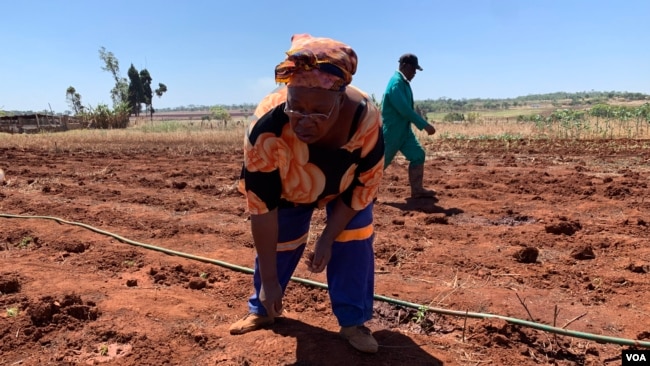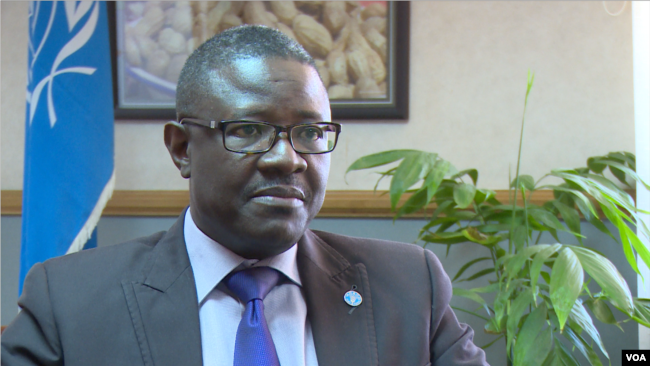Zimbabwe Farmers Call for Help to Mitigate Drought Effects
Appeal comes as UN Food and Agriculture Organization predicts possible dry weather pattern that might affect country’s food security
Source: Zimbabwe Farmers Call for Help to Mitigate Drought Effects – VOA
Farmers in Zimbabwe are appealing for funds to irrigate their land, in hopes of fending off a possible drought predicted by the U.N. Food and Agriculture Organization. FAO says droughts caused by the El Nino weather pattern are recurring more often and that might affect food security.At Mugutu farm, about 40 kilometers north of Harare, a tractor tills land ahead of the rainy season, expected any time now.
But at another farm nearby, 59-year-old Tsitsi Marjorie Makaya is focused on raising her chickens.
“We cannot do irrigation, we do not have the money to set up the irrigation system, the money to buy pipes, for electricity, we do not have the money. We only managed to drill a borehole and that is how we water our garden. We cannot put the whole plot under irrigation because we do not have all the necessary equipment,” Makaya said.

Fifty-nine-year-old farmer Tsitsi Marjorie Makaya works on her farm in Mazowe district, about 40 km (25 miles) north of Zimbabwe’s capital Harare, Nov. 12, 2018. (C. Mavhunga/VOA)
When asked if she was aware of the predicted El Nino drought predicted, the former vegetable vendor said it was beyond people’s control.
“There is nothing we can do about it, all we say is the rain belongs to God. Sometimes they said there is not much rain and we end up having plenty of rain. Since we started living here in 2000, we have never had any problems with rain; all other areas might have challenges with rainfall, but never in this area,” Makaya said.
But Patrick Kormawa head of FAO in southern Africa says depending on rain-fed agriculture on the continent is not a good idea anymore.
“El Nino is here to stay. Any countries where agriculture relies on rainfall agriculture, we believe that member states should see how best they can invest in irrigation schemes. For example here in Zimbabwe, we have worked with the government to rehabilitate 34 irrigation schemes. This is showing tremendous improvement in the productivity of farmers,” he said.

Patrick Kormawa, head of the U.N. Food and Agricultural Organization (FAO) in southern Africa, pictured here in Harare, Zimbabwe, Nov. 12, 2018, says depending on rain-fed agriculture on the continent is not a good idea anymore. (C. Mavhunga/VOA)
Kormawa said even smallholder irrigation schemes were improving food security and income in countries where agriculture is the backbone of the economy.
The FAO official said with irrigation plans the effects of droughts would be mitigated and food security ensured.
